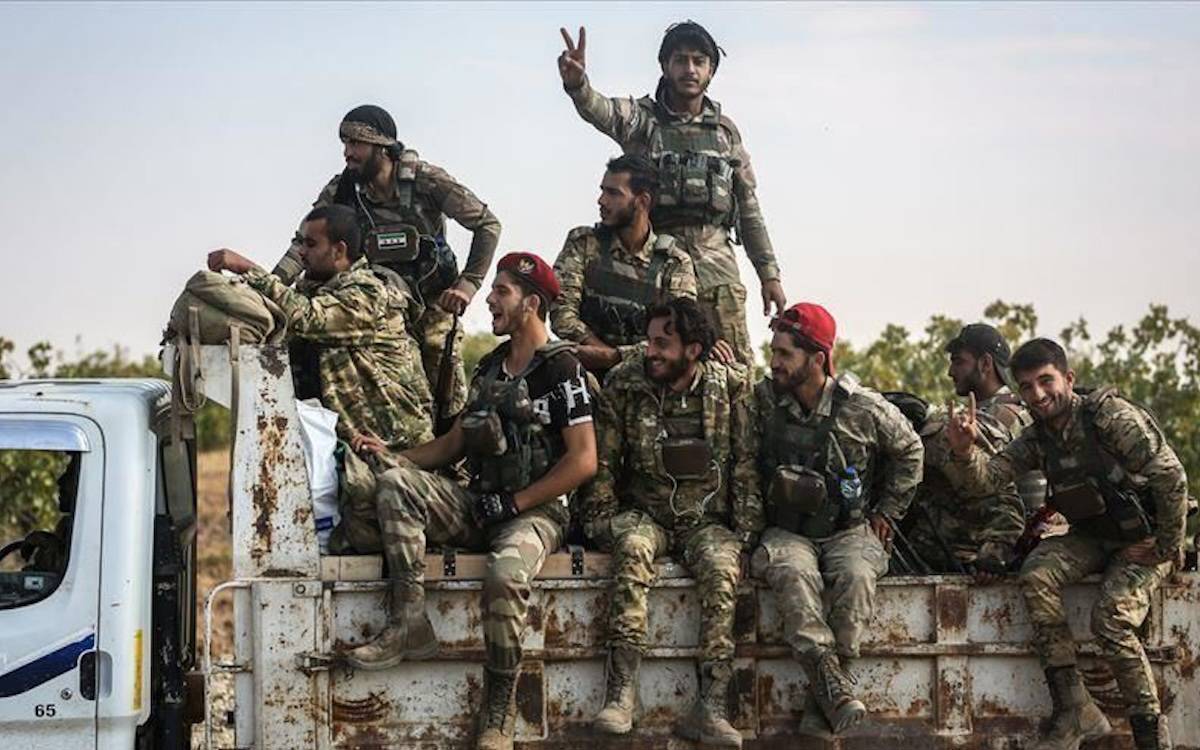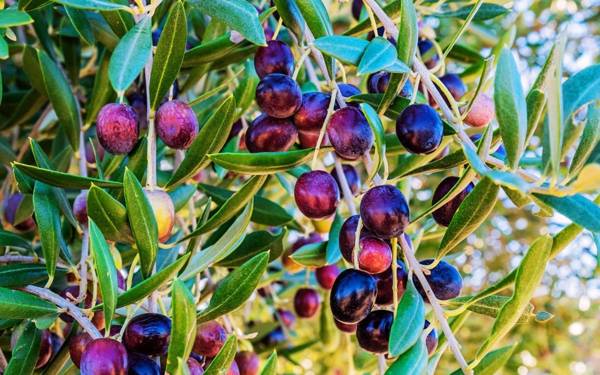Turkey-backed militias are facing accusations of stealing olive harvests and imposing extortion in three areas of rural Afrin, Syria's south.
Since Turkey's "Operation Olive Branch" launched on January 20, 2018, which aimed to seize control of the Afrin district in Aleppo province and the town of Tel Rifaat in the Azaz district, Afrin, once a center for olive farming, has been under the control of the Turkish Armed Forces (TSK) and armed groups known as the Syrian National Army (SNA).
.jpg)
How has the demography of Afrin changed since 2018?
Ankara asserted that its operation aimed to "cleanse" Afrin of the People's Protection Units (YPG) and Democratic Union Party (PYD), which it considers terrorist organizations. The operation subsequently extended its reach to include several regions, totaling 332 areas, under the military control of TSK and SNA. These regions comprised towns such as Bulbul, Jinderes, Mabatli, Rajo, Sheran, and Sheikh Hadid, along with 282 villages, six sub-villages, 23 strategic hills or mountains, one dam, one airport, and one military base.
Throughout the operation, the Syrian Observatory for Human Rights reported that 1,584 YPG/PYD and Syrian Democratic Forces (SDF) members, 91 Syrian Armed Forces soldiers, 604 SNA members, and 85 TSK personnel lost their lives. TSK press releases stated that 4,608 PKK/YPG/PYD and ISIS members were neutralized, while 320 SNA members and 54 TSK members died, with 236 soldiers wounded. According to the SDF, over 1,648 SDF and TSK members lost their lives, along with 820 SDF members and 62 Syrian Armed Forces soldiers.
Since that time, demographic changes have been made to the district and the occupied areas, often favoring non-Kurdish populations.
An armed group supported by Turkey, known as the "Sultan Murad Division," ordered the cutting of 25 olive trees for the purpose of selling the wood in Terendeh village. This militia has been active in the region since 2013, claiming to represent Syrian Turkmens with Turkish support. The Sultan Murad Division, considered one of the most heavily supported armed groups in Syria by Turkey, is known to possess at least eight FNSS ACV-15 model armored personnel carriers, heavy machine guns, and automatic cannons, as well as BGM-71 TOW anti-tank missiles supplied by the U.S.
In Kayla village of Bolbol district in Afrin's rural area, a militia named the "El-Majd Brigade" ordered one of the village's residents to cut 200 olive trees, demanding 15 Turkish Lira (TL) for each olive tree and two tins of olive oil for each field.
Similarly, in Ceklemeh village in Afrin's rural area, olives harvested from numerous orchards were stolen. The locals complained about these incidents, but no measures were reported to have been taken by the authorities.
In Cindires district, a member of the Turkey-backed "Ahrar al-Sham" militia reportedly entered a house and stole $500, 3,000 TL, along with several tins of olive oil and sacks of olives belonging to a person working in an olive orchard. Despite the owner's complaint, no action was taken.
Members of the "Al-Hamza Brigade" also demanded extortion fees ranging from $300 to $500 from olive harvesters in the villages of Coleke, Fkiyra, Kafr Dali, and Tahtani in Cindires district. Moreover, the militia imposed an olive oil levy of 250 tins on the residents of Korka village.
Sources from the Syrian Observatory for Human Rights have reported that these increased incidents of theft, extortion, and looting, coinciding with the start of the olive harvest season in Afrin Canton, are largely attributed to Turkey-backed militias. Such injustice and oppression have ignited outrage among the local population. (AEK/VK)








